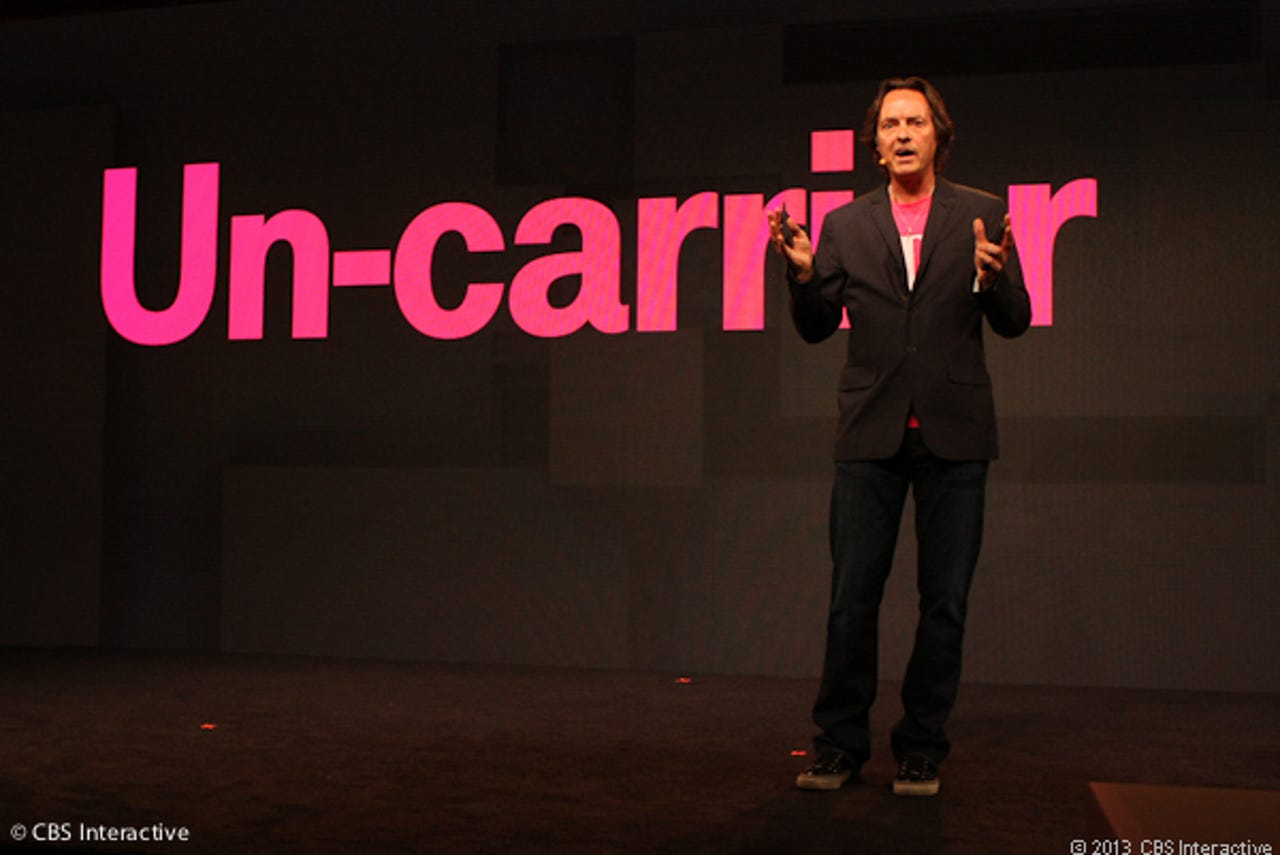T-Mobile CEO sends signal: Sprint takeover isn't on the cards


CES 2014 hasn't been all about the products this year -- instead, we've seen it used as a platform to springboard companies into the spotlight in other ways.
T-Mobile is a prime example. CEO John Legere's hilarious gatecrashing of AT&T's developer party -- caught and tweeted by sister site CNET's Roger Cheng before the executive was promptly thrown out (still wearing his trademark pink T-Mobile T-shirt) was only one way that brought the U.S. carrier to the media's attention.
The Twitterverse went crazy over the incident, highlighting the fierce competition between T-Mobile and AT&T, two of the United States' largest carriers.
Last week, AT&T launched a new scheme to lure T-Mobile's customers away from the firm -- offering as much as $450 to those willing to jump ship. At CES 2014, Legere slammed the promotion as "desperate," and has poked fun at his rival ever since. Amusing incidents keep us happy and keeps T-Mobile in the media, but that doesn't mean business decisions are not also being made to trump AT&T's bold scheme.
T-Mobile now offers packages worth up to $650 if they leave rivals including Sprint, AT&T and Verizon in order to sign up with the company -- $300 to trade in their old handsets, and up to $350 to cover termination fees for old contracts.
Poaching subscribers is one thing, but being able to expand and snag new business is another.
Spectrum resources means capacity for carriers, especially as consumers move to 4G networks and demand support for streaming media and constant Internet access. The face of networks has evolved rapidly from the days of Nokia bricks and the beloved 'Snake" game, and now, our mobile devices are smart, shiny and Web-connected. Apps have taken the place of pre-installed games, video calling can replace traditional voice communication. However, with all of these changes, carriers have upped the competition -- and spectrum is a hot commodity.
T-Mobile recently purchased spectrum from Verizon for $3.3 billion, and said it is a "priority" to get more in order to improve high-speed network services and compete against its rivals.
At the end of 2013, rumors suggested that T-Mobile could potentially be purchased by Sprint, the third largest carrier in the U.S. behind AT&T and Verizon for its spectrum resources and subscribers. Even if such a merger -- potentially worth $20 billion -- took place, the firms would still be behind the top two in subscriber count.
It was still a possibility. However, in Legere's eyes, such a future isn't on the cards.
At CES, Legere said that the firm isn't interested in buyouts -- and instead is going to focus on securing new customers, more spectrum, and initiatives to make the company stand out from rival firms.
During the firm's press conference, the executive said that T-Mobile's "UnCarrier" plan -- which kills off the traditional contract and introduces early upgrades -- has proven to be a success. Lengthy contracts, expensive termination, the eye-watering cost of roaming and the long wait to upgrade phones are often points of frustration for customers -- but T-Mobile wanted to remove these aggravations to become more appealing to customers. It seems to be working, as the carrier secured 4.4 million new subscribers last year.
The purchase of Verizon's spectrum was the next phase of the plan. The company will use Verizon's low-frequency spectrum to build its network in suburban areas, improving coverage and potentially snagging more subscribers in the coming year.
However, when asked about the rumored acquisition -- which would have given Sprint the carrier's resources and subscribers -- Legere said:
"The consolidation in the industry has been about spectrum. All the rumors are about spectrum. But they're spectrum with no legs. The T-Mobile brand and people will stay. How that plays out remains to be seen."
With such aggressive moves obviously working, a potential merger with Sprint doesn't seem to be a near future for T-Mobile. Instead, Legere hopes that T-Mobile will continue to improve as an independent operator -- and eventually become one of the largest.
"It won't happen this year or in two years," he said. "But we are playing hard."